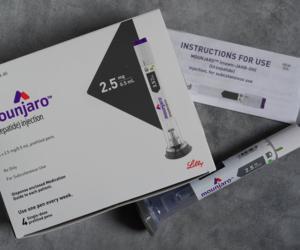“How can a person fight chemotherapy fatigue?”
My friend's son is having chemotherapy, but because of his treatment, he has fatigue. How can he fight chemotherapy fatigue?
2 Answers
Hello.
Chemotherapy related fatigue is very common. However, there are many possible causes or factors that contribute to this irritating symptom. These include simultaneous radiation therapy, bone marrow transplant, and biological therapy. Other contributing factors which can be induced by chemotherapy include anemia, combination therapy in patients receiving more than one treatment at a time, a treatment induced “hyper metabolic state” which can result in weight loss, decreased appetite and fatigue, decreased nutrition which can result from side effects of chemotherapy including nausea and vomiting, hypothyroidism, pain, medications given along with chemotherapy, stress and/or depression.
To deal with these issues it is important to plan ahead and organize the workload. Schedule and take rest periods, pace oneself, limit overhead and isometric work, practice proper body mechanics to combat cancer fatigue including using carts or chairs with good support, bending at the knees or hips rather than the back, avoiding temperature extremes or smoke. It is important to prioritize nutrition and fluid intake. Getting good sleep, exercise and stress management are also important.
It is important to discuss the fatigue problem with the doctor who prescribes the chemotherapy. Other causes of fatigue must be considered and medications can be adjusted. Sometimes stimulants can be prescribed to counteract the fatigue.
Good luck to the patient. It is important for him to talk to his doctor about this. An excellent review of this syndrome can be found at chemocare.com, Care during chemotherapy and beyond. The heading is Fatigue and Cancer Fatigue.
Chemotherapy related fatigue is very common. However, there are many possible causes or factors that contribute to this irritating symptom. These include simultaneous radiation therapy, bone marrow transplant, and biological therapy. Other contributing factors which can be induced by chemotherapy include anemia, combination therapy in patients receiving more than one treatment at a time, a treatment induced “hyper metabolic state” which can result in weight loss, decreased appetite and fatigue, decreased nutrition which can result from side effects of chemotherapy including nausea and vomiting, hypothyroidism, pain, medications given along with chemotherapy, stress and/or depression.
To deal with these issues it is important to plan ahead and organize the workload. Schedule and take rest periods, pace oneself, limit overhead and isometric work, practice proper body mechanics to combat cancer fatigue including using carts or chairs with good support, bending at the knees or hips rather than the back, avoiding temperature extremes or smoke. It is important to prioritize nutrition and fluid intake. Getting good sleep, exercise and stress management are also important.
It is important to discuss the fatigue problem with the doctor who prescribes the chemotherapy. Other causes of fatigue must be considered and medications can be adjusted. Sometimes stimulants can be prescribed to counteract the fatigue.
Good luck to the patient. It is important for him to talk to his doctor about this. An excellent review of this syndrome can be found at chemocare.com, Care during chemotherapy and beyond. The heading is Fatigue and Cancer Fatigue.







